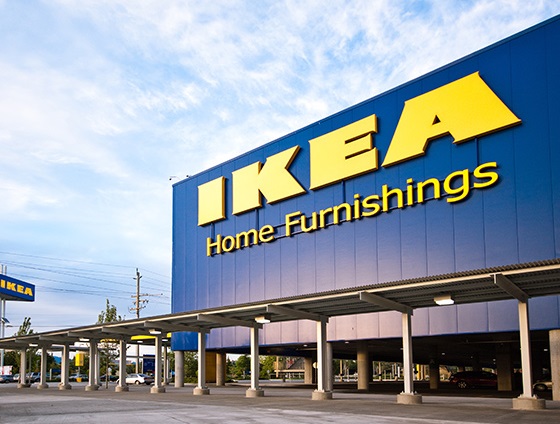Is Ikea's entry to the $20 billion furniture industry a worry for Indian furniture online players?
Source:exchange4media.com
IKEA, the Swedish furniture giant is all set to lay its foundation stone for its first store in Hyderabad on August 11 and will open its doors to the customers’ mid-next year. It was already in the reports that it is investing Rs 1,500 crore in Mumbai as part of its plan to have 25 stores across India by 2025.

IKEA, the Swedish furniture giant is all set to lay its foundation stone for its first store in Hyderabad on August 11 and will open its doors to the customers’ mid-next year. It was already in the reports that it is investing Rs 1,500 crore in Mumbai as part of its plan to have 25 stores across India by 2025. It has mapped out its other stores across Bangalore, Mumbai and NCR. The store in Navi Mumbai will come within 18 months, for which the company has invested Rs 400 crore. It was reported that each location involves an investment of Rs 550-600 crore.
The world’s largest furniture retailer IKEA was one of the first companies in India to get approval for setting up 100 per cent FDI in single brand retail.
IKEA is coming at an exciting time in India, especially when its furniture space is buzzing with activity. The home furniture industry in India is estimated at $20 billion, of which online takes up around 250 million. According to reports, the number is likely to boost up to $35 billion, with $700 million dedicated to online furniture space by 2020.
Online leaders
IKEA’s entry will impact the urban cities. Moreover, online furniture store Urban Ladder, which operates in 19 cities, gets 80% of orders from tier-1 cities according to reports. Will the online furniture space face the heat with its entry?
With IKEA’s lacklustre performance in the online space (owing to its website which has been criticized abroad for its poor display of its latest products) it seems unlikely. Urban Ladder (which operates as a marketplace) doesn’t intend to have offline stores. According to reports it is looking to transact a GMV (Gross Merchandise Value) of $250 million by June 2017, even though it reported losses of Rs 58.51 crore in FY15 on revenues of Rs 19.21 crore.
Its competitor Pepperfry, another market leader in the online space, has scaled its operations and is seeing significant contributions to revenue from its physical stores. According to reports, eight Tier-1 cities contribute to almost 80% of its business and the company is expecting to hit Rs 2500 crore in GMV by March 2017. The company is already upping its game with its plan to double its store count to 16 this year, as stores have turned out to the ‘best marketing channel for them.’ Pepperfry opens stores based on customer purchase data of the previous 24 months, which helps it select cities with high customer density. By opening stores in such areas, it is also able to drive supply-chain efficiencies as more orders from an area translate into lower average cost of delivery.
There are other players like Mebelkart, Customfurnish and Stitchwood which have raised funds in the recent past and are looking to reach out to more buyers with the help of technology. Meanwhile online interior home design and furniture company Livspace is going all out to expand across country and revolutionise the home design catalogue.
According to a study by CraftDriven Market Research, the furniture industry is expected to witness a growth of more than 49% within a span of two years. The growth is attributed to many start-ups as well as to the entry of e-commerce giants like Amazon, Flipkart and Snapdeal. Flipkart aims to become India's largest furniture retailer by the end of this year, with an ambitious target to register a 15-fold growth in the high-value category, which also promises to deliver healthy profits.
Moreover, it reports that the start-ups are rapidly working to organise the whole industry.
Offline players
On the other hand the traditional players like Godrej Interio has partnered with e-commerce major Flipkart to enable customers to access former’s exclusive range of furniture. Last year it was heard that Godrej Interio will invest up to Rs 300 crore in the next one year to expand its manufacturing capacity and sales network. Plans are on to add another 100 exclusive stores in next three years on franchise model. The aim is to get around 15% market share within 2 years by introducing innovative designs and expanding its network.
Other players like Kishore Biyani's Hometown, which recently acquired Rocket Internet-owned Fabfurnish to build an 'omnichannel strategy', is selling both online and offline. With this acquisition the company is targeting revenues of Rs 1,000 crore by fiscal year 2017.
However, IKEA’s USP is its do-it-yourself (DIY) model, which is new in India. Urban Ladder’s founders feel that IKEA will help push the concept of brand and retail store experience. One can safely assume the players in this vertical are definitely bracing up their strategy and at the same time looking forward to IKEA’s debut in India.
(Source: exchange4media.com)





 沪公网安备31010402003309号
沪公网安备31010402003309号



